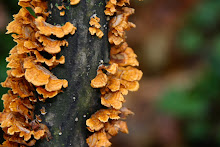
The weight of sunlight settling on the earth is estimated to be a hundred-millionth of an ounce per second. But this is only a guess. And only a guess at an average at that. Besides, the weight is less than that on this late winter afternoon, in these shaded woods, and I have no idea what the weight of a hundred-millionth of an ounce feels like anyway, except I know the way the sun feels on my skin. If somehow someone could touch my arm at just the same amount of pressure as the sun, I wouldn’t be able to say that it felt just like sunlight. Neither could you. No one can.

I am wondering about the names of trees. Latin and Common. When I was a child walking in the woods, there were only trees. Skinny trees. Fat trees. Tall trees. Young trees. The word tree sufficed, can still suffice. Once I was walking through the woods with a friend – we were maybe eight or nine years old. He and I would spend long afternoons in the woods, climbing gully banks and following animal trails. For some reason, on this day my friend was carrying a hatchet, swinging it beside his leg as we were walking, and at some point in our walk he stopped beside a sapling and began hacking it down. I grabbed his arm and made him stop, and the outrage and anger that drove me to make him stop baffled me even then and baffles me now.

Why would an eight year old boy care more about saving a sapling than relishing a chance to chop a tree – however small – down? I still don’t understand it. It seems to me I should have been eager to seize the hatchet and chop down the nearest vulnerably thin tree once he was finished. I didn’t know what kind of tree he was killing, and that kind of knowledge was irrelevant anyway. What mattered was that once destroyed, that tree would be forever destroyed. And lacking the power to create or renew life, it seemed an offense to kill or mangle a living thing. The injustice of destroying life simply out of caprice or because you have the ability to -- somehow that awareness was alive in me then, born from an unknown source, and it still lives within me.

It is a Pyrrhic victory, this knowing the names of trees. A necessary skill, naming the things of the world. Adam’s first task. Imagine a world in which everything in nature was unnamed, in which we had to go about naming – and only for ourselves – every living thing we encountered. It’s called schizophrenia. You would point at a Shumard Oak and speak its name and your companion would look at you uncomprehending, as if you had started speaking some obscure language, and pointing at the same tree, begin speaking a foreign language to you. But also a skill that can enable the destruction of the things named.

Along the trail we are following this afternoon there are signs of small-time vandalism: mostly snapped limbs and someone has broken the long thin stems of a hazelnuts and elderberries. And this carelessness is visible on the part of the forest seized and fenced off by the zoo – visible in the zoo’s clearing of the undergrowth. And I am wondering about this particular form of vandalism, not so small-time, committed by those we can only assume should know better, authorized by those who maybe know the names of the things they are destroying, and use that knowledge as barrier to a keen awareness of the injustice they are committing, able as they are only to recklessly destroy lives they cannot replace.

The force that drives us to label the creatures of nature no doubt has saved us, lacking as we do the instincts to sense the healthy and the harmful, the benign and the hostile, in the world around us. And without names to guide us now – now that the world is mostly safely tamed for us humans – without names and knowledge of the purposes of nature, we’d have a hard time making a case for the preservation of nature. We can argue the important, various roles that ash and tulip poplar and sycamore trees play in an ecosystem. But this knowledge also leads us to rationalize the destruction of nature, and provides economic motives for those who believe nature’s role is simply to provide material prosperity for the few who have positioned themselves to exploit it and maybe also to provide some scenic backdrop for their “recreational activities.”

In one of his journals, Thoreau wrote, “We thus commonly antedate the spring more than any other season, for we look forward to it with more longing. We talk about spring as at hand before the end of February … We may not even see the bare ground, and hardly the water, and yet we sit down and warm our spirits annually with distant prospect of spring. As if a man were to warm his hands by stretching them toward the rising sun and rubbing them.” Thinking about spring in late winter doesn’t make the weather any warmer. Knowing the names of trees doesn’t necessarily make us any wiser. Sitting in a dark room, pondering the weight of sunlight feels nothing like being outside, even on a chilly day like today.

Here in the woods -- where the names of trees are irrelevant, where the sunlight is felt, not measured -- the shoots push their way into the air, the grape vines hang and soar, the first buds are swelling. Everything is reaching for light.
Words by Stephen Black
Photos by Jenn Allmon
For more photos from today's walk click here.

beautifully written and photographed!
ReplyDelete